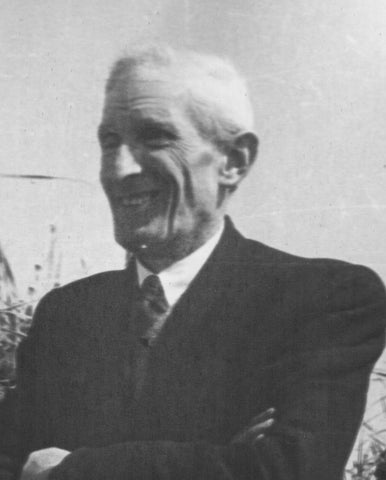The headline in the local Jewish newspaper read, “Orthodox Man Accuses Delicatessen Owner of Cutting Meat With a Knife Used for Cheese.”
This heresy of mixing meat with milk was exposed by my zaida (grandfather), Harry Cohen, a fanatically religious man who ultimately became the shammes (beadle) of Garnethill Synagogue, an orthodox congregation in Glasgow.
He wasn’t always this way.
Born Herzl Katzenelenbogen in western Ukraine, he experienced a pogrom at the age of eight when saber-carrying Cossacks came charging through his mainly Jewish town. Hiding under a cart he witnessed the mayhem and death inflicted on his community.

His mother owned a grocery store and this gave him access, at an early age, to tobacco, and from then on was rarely seen without a cigarette in his mouth. When he was a teenager he was apprenticed to a woodworker where he became an expert carver of walking sticks. In those days, the early 1900s, respectable gentlemen always carried a walking stick.
A mixture of poverty and anti-Semitism forced him to move to London. On arrival in the UK, the customs agent, unable to pronounce his name, changed it to a common name for Jews. Harry Cohen was born.
He lived in Mile End in the East End, a predominantly Jewish neighborhood, where he met and subsequently married my grandmother, an active communist and former Bolshevik. My mother and her three siblings were all born there.
When the Great War broke out, he claimed he was a conscientious objector and deserted the army. He hid out in an attic until the war ended. My aunt told me stories of visiting her father as a young girl and being sworn to silence by her mother. During the Depression they were very poor so on the urging of a relative, the family moved to Glasgow, where Harry found work as a woodworker. A moment of distraction caused him to amputate a finger. Even though he rushed to the hospital, finger in hand, they were unable to re-attach it. This curtailed his job and the family lapsed into poverty once again.
Sometime after this he returned to London in search of work. A few weeks later he sent a letter home, saying that he had become a religious Jew. No one would be allowed to ask him why or make fun of him. He would cook his own food and use his own pots and pans. He demanded a corner of the table on which to put his own tablecloth.
On hearing this my grandmother called him “Harry the Meshugenah” (Harry the crazy person). From then on, she always called him that. He never did tell anyone what happened in London to convert this most secular of Jews to orthodoxy.
During World War II he became an air raid warden and patrolled the streets of the Gorbals in Glasgow, making sure lights were out and people were in the shelters during the many air raids on this industrial city. One night while on duty on the banks of the river Clyde, some soldiers mistook him for Field Marshal Montgomery and stood to attention while saluting him. Bemused by this, he saluted back and dismissed them.
He actually looked a lot like “Monty,” the commander of the British Eighth Army who defeated Rommel at the battle of El-Alamein, which led to the rout of the German army in North Africa.
He was great forager, a skill he learned in Ukraine where hunger was never far away. He would take my sister out for very long walks and knew where to find wild berries, mushrooms, and herbs. He had an allotment by the side of the river Clyde, close to where he lived. On it he grew vegetables and, in used large pickle cans, tomatoes. Around the corner was a stable for Clydesdale horses used to haul coal and other goods through the streets. After they passed, my sister and I would often walk down the street with a bucket and spade and collect horse manure which he liberally fed to his garden.
His involvement with Judaism grew and he became more and more religious. Every Friday night and Saturday morning, irrespective of the often-foul weather that Glasgow is famous for, he walked the four miles to the Synagogue never missing a day. At one point his son Sam bought a beautiful house in Shawlands, an up-market area in Glasgow. In the front was a rose garden with paving stones that were in the shape of a cross. Outraged by this, he came over when the house was empty and without permission, dug up the garden, saying Jews shouldn’t have a cross in their home. Interestingly, he never tried to covert any of us fallen Jews to orthodoxy. But his fanaticism grew over the years, leading to the denouncement of the delicatessen in the paper.
In his early seventies he suffered a stroke and slowly faded away. I was fifteen and would visit him and talk while squeezing his hand. Often, he would squeeze back. But every day his squeeze grew weaker until it finally stopped. Many orthodox Jews came to his funeral and it was only then that I realized just how much he was loved and respected.













0 comments